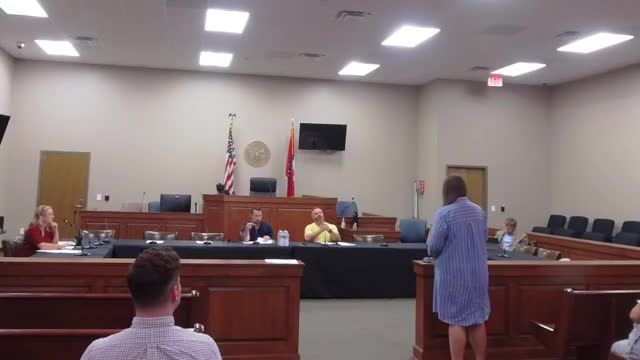Faulkner County Extension office explains grants-in-aid, voluntary tax and 4‑H staffing pressures
Get AI-powered insights, summaries, and transcripts
Subscribe
Summary
Faulkner County extension office staff outlined how county grants-in-aid and a voluntary tax interact with state and federal funding, described a hiring freeze at the state level, and requested clarity about how county funds are authorized and used for salaries and programs including 4‑H.
Marybeth Gross, representing the Faulkner County Extension Office, told the Budget and Finance Committee how the office’s funding is structured and where county grants-in-aid and voluntary tax revenues are used.
“County voluntary tax has been bringing in 50 ish, 60 ish thousand dollars a year,” Gross said, describing the scale of local voluntary-tax receipts that supplement state and federal extension funding. She explained that the local appropriation is blended with state Smith‑Lever Act and federal funds to pay staff, utilities and program expenses and that many 4‑H fundraising dollars are reserved by clubs for camps, competitions and scholarships rather than being paid to the extension office.
Gross said the extension office historically received appropriations through a grants‑and‑aid line rather than as a direct line item, an arrangement staff and committee members traced to earlier county budgeting decisions tied to the creation of the voluntary tax. Gross provided a breakdown of the office’s appropriation and said that some funds are routed through the state office and returned to local accounts to pay local salaries and operating expenses.
Committee members pressed for details about 4‑H staffing. Gross said Cammie (4‑H agent) is a full‑time paid agent; an assistant who resigned in May has not been replaced due to a state hiring directive that limited new full‑time hires. The office is using part‑time or “work‑only-when-needed” positions while the state’s hiring posture remains constrained. Gross said the county’s grant money goes primarily to salaries and office operations, while fundraisers pay for club-level travel and competition expenses.
Committee questions touched on how the extension office and the fair board sometimes appear to overlap in public interactions. Gross said 4‑H volunteers and youth activities frequently use extension facilities and staff provide ex‑officio support to the fair board, but she emphasized that the fair board and 4‑H foundation are separate entities and handle their own funds. She asked for the committee’s help in clarifying lines so frustrated citizens contacting the extension office are directed appropriately.
No formal committee action was taken on this presentation; Gross left budget and line‑item detail with the committee and offered to provide printed appropriation breakdowns.
